Memory. In many ways, it’s what makes us who we are. What we remember, and how that memory influences our actions and our behaviors defines us as much as anything else. Memory plays a vital role in our everyday lives – in our jobs, our relationships, our finances, and our homes.
And yet, memory is something that we often lose over time. So, how can you keep your memory sharp, whatever your age, or improve your memory so that it can help you out every day?
Do books help improve memory?
There are many benefits of reading books, and improving your memory is just one of them! Regularly reading for pleasure has been shown to significantly improve memory.
If you find that fascinating, and want to learn more about how to improve your memory, the below books are for you.
From tours of the brain to tools for helping you to build your memory today, tomorrow, and for a lifetime, these indispensable books will help you to understand the science of memory, how our sleep and our senses may affect what we know and recall, and how we can each take our own mental clarity in hand.
Building off the latest research in memory, sleep, and neuroscience, as well as anecdotes taken from everyday life, these books are informative, approachable, and ready to help you remember better—starting now!
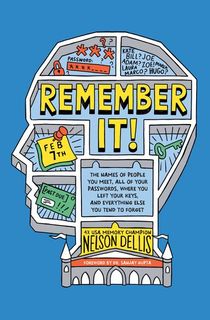
Remember It!
What is a memory champion? Ask Nelson Dellis, 4-time winner of the USA Memory Championship. As a “memory athlete,” he brings his winning strategies along with decades of research into how memory works to this fun and approachable book designed to help people take advantage of championship strategies to help remember things in their day-to-day lives.
Focusing on the things we want to remember most – important dates, numbers, names, even where you left your car keys – this illustrated guide allows anyone to use the same techniques that Dellis uses to win championships. We may not all be interested in competing in the USA Memory Championship, but we could all use more help remembering things in our everyday lives.
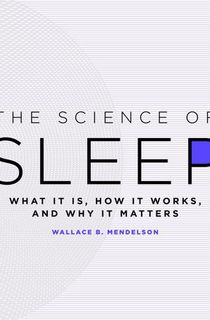
The Science of Sleep
Sleep. Every day it seems like we’re learning new things about its importance, and how it affects everything from our moods to our concentration to our physical health. As science opens new inroads into the study of sleep, we’re also learning how important good sleep is to our memory, both on a day-to-day basis and for our lifetimes.
So, while Wallace B. Mendelson’s “attractive, artistic, informative, engaging, and lucidly written” guide (Sleep and Vigilance) may not be focused exclusively on memory, we know that improving (and understanding) your sleep can have a huge impact on your memory today and for years to come, and this concise and clever book is a good starting point.
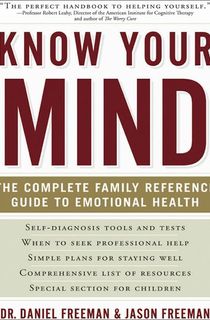
Know Your Mind
Dr. Daniel Freeman has been called one of the UK’s leading clinical psychologists, and in this comprehensive and approachable handbook for mental health, he and co-author Jason Freeman provide a wealth of information to help address common mental health concerns, ranging from memory loss to mood swings, addiction to eating disorders.
Designed for both the individual coping with their own mental journey as well as loved ones and family members, this indispensable guide provides everything from tools for self-diagnosis and guidance on when and how to seek professional help to simple, everyday things that we can do to help safeguard our own mental wellbeing.
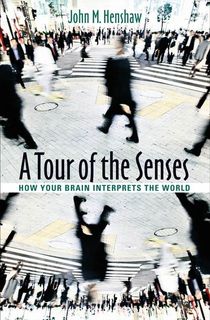
A Tour of the Senses
Our memory begins with our perceptions – but how do we really perceive things, and what makes one thing more memorable than another? “A Tour of the Senses is a fun book, which may be of interest to anyone who’s ever wondered how the eye or the ear works” (American Journal of Human Biology).
Combining a history of the science of the senses with modern research and real-world anecdotes, John M. Henshaw provides a whirlwind tour of not only our own five senses, but the amazing range of sensory perceptions experienced by other members of the animal kingdom, to give us a better understanding of and appreciation for our own senses and how they make up our experience of the world.
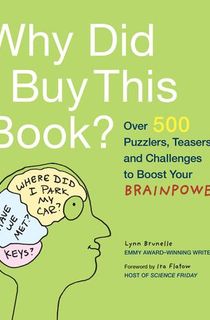
Why Did I Buy This Book?
Enhancing memory can be fun, as demonstrated by this collection of over 500 logic puzzles, word games, riddles, and other challenges designed to help boost your brainpower and enhance your memory.
From Emmy-winning writer Lynn Brunelle, and with a foreword by Ira Flatow, host of NPR’s Science Friday, this book of brain teasers is a one stop shop filled with challenges and games that will keep you entertained while also engaging your mind in ways that help strengthen your memory muscles.
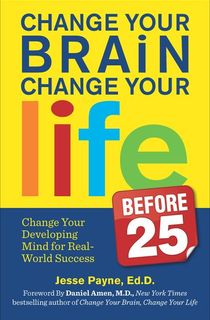
Change Your Brain, Change Your Life Before 25
We all know that when we are kids, our brains are at their most responsive. This is why something like learning a new language comes so much more easily to young children.
In this guide filled with “valuable information” (School Library Journal), Jesse Payne offers a wealth of helpful info and tips for teens and young people – and their loved ones – on how to take advantage of the mind’s dynamism in early life and prepare your brain to serve you well for a lifetime, from improving your memory to boosting your mood to enhancing lifelong relationship skills, and much more.
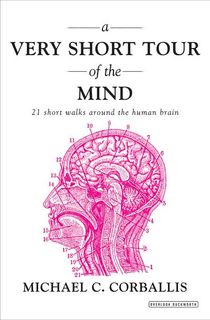
A Very Short Tour of the Mind
In this “thoroughly enjoyable” book (Kirkus Reviews), cognitive neuroscientist Michael C. Corballis takes us on “21 short walks around the human brain,” showcasing what the science has revealed about how the human mind works, and all the many mysteries to which we still lack answers.
The result is an unforgettable tour of the brain through anecdote and scientific fact, posing “questions we wouldn’t have thought to ask and then answer[ing] them with clarity and wit” (American Scientist). If you’ve ever wanted a better understanding of your brain, and of our knowledge of the science of the human brain in general, this informative and approachable book is an ideal place to begin.
